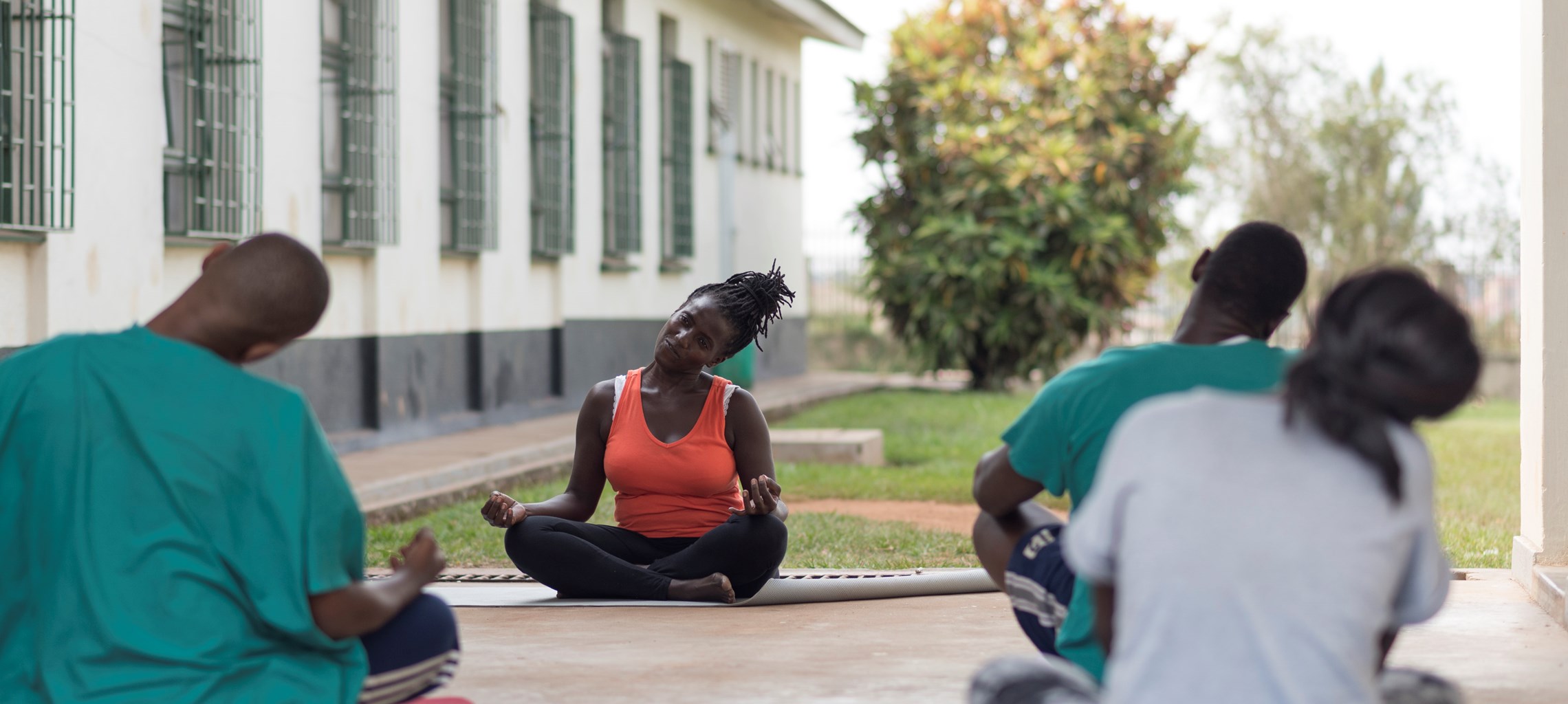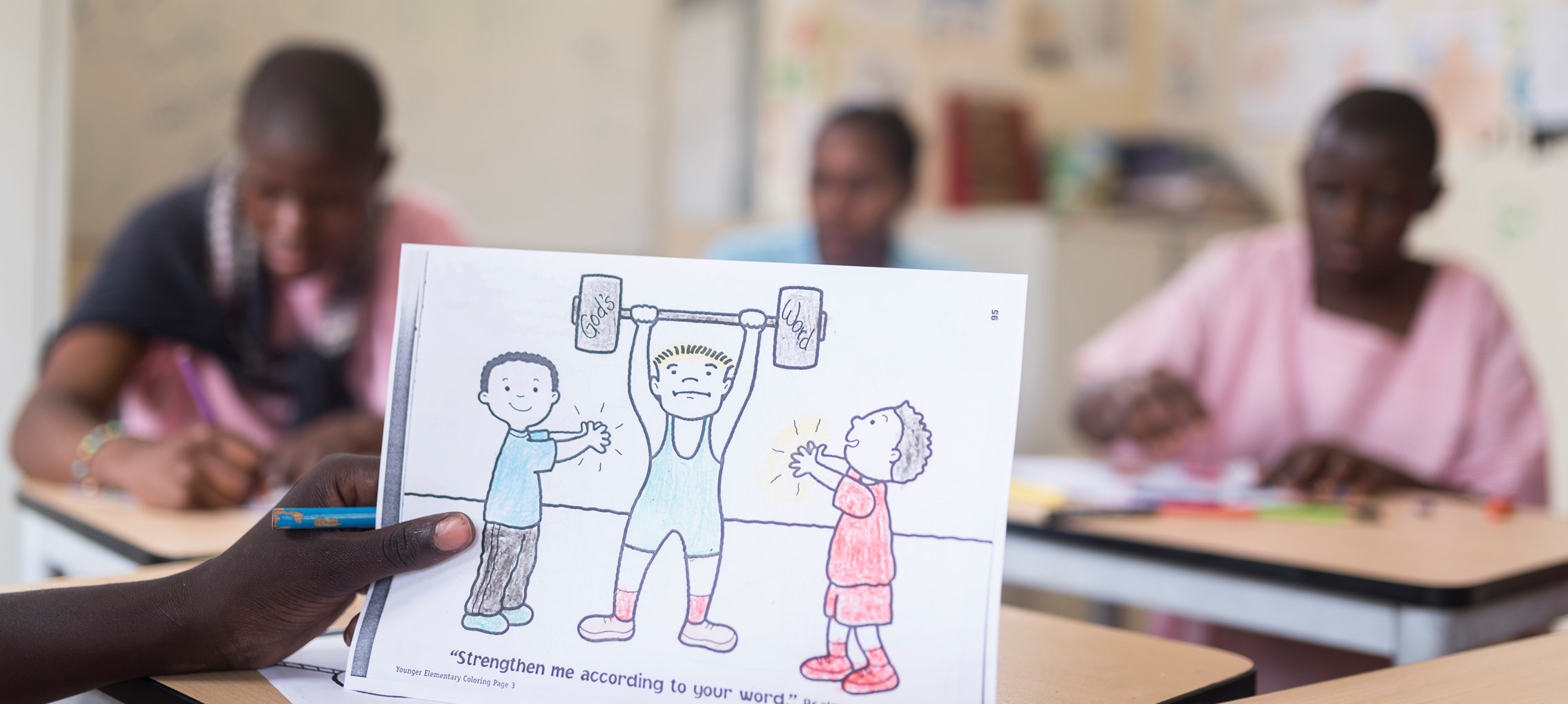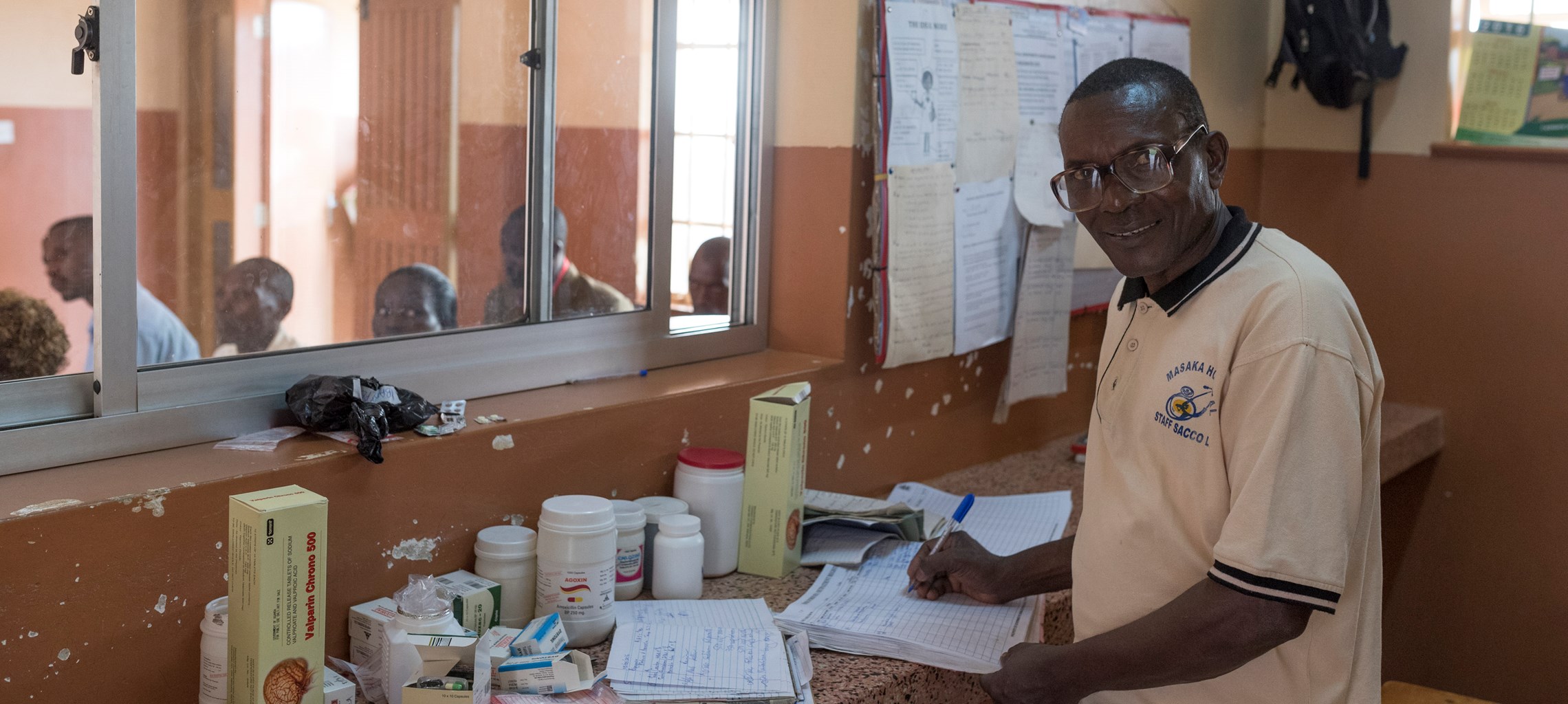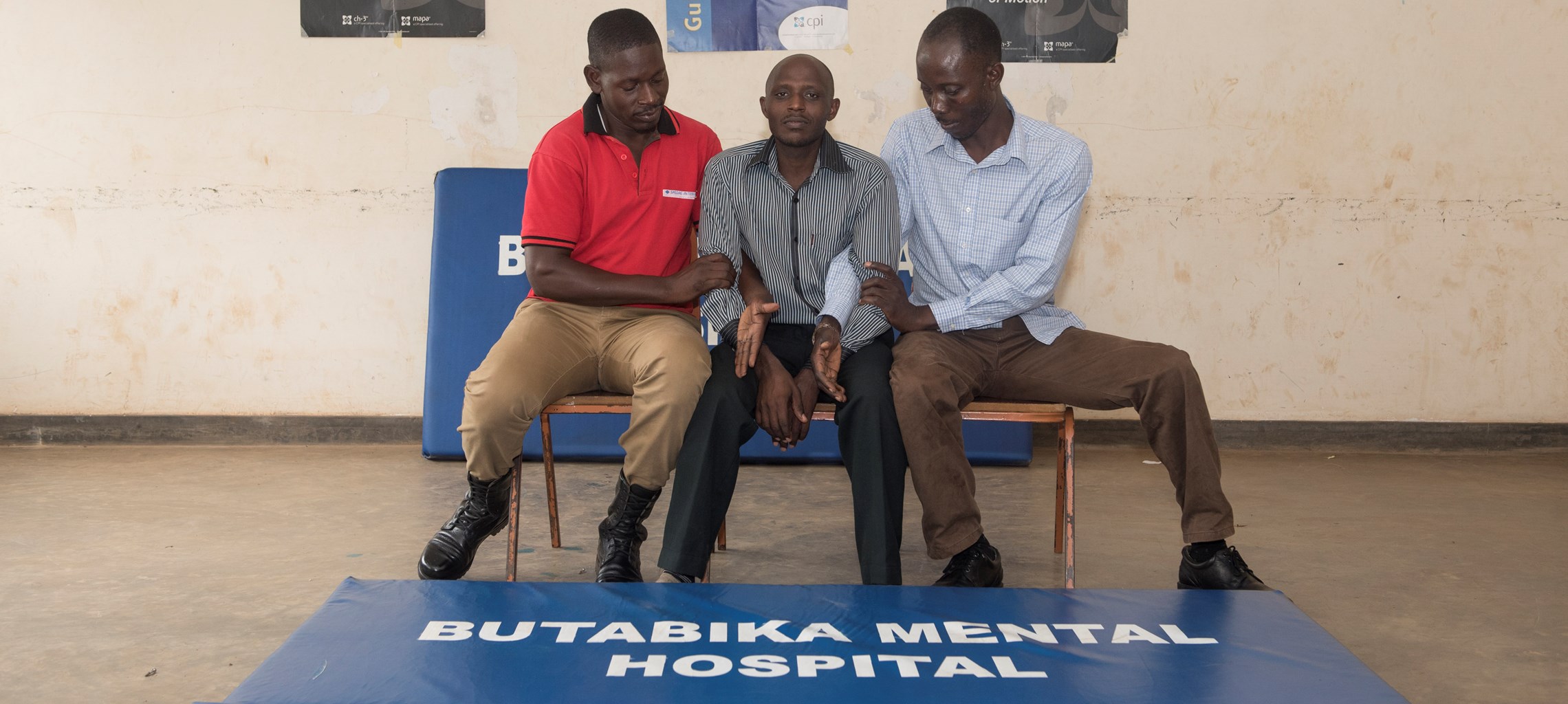Historical Projects
Some of the Butabika-East London Link’s key projects to date have included:
Psychiatric Clinical Officer Psychological Training and Projects, 2009-2012 Funded by: The Tropical Health and Education Trust (DFID)
A three-year project, to train Psychiatric Clinical Officers (PCO) in psychological, project and supervision skills, implemented in partnership with Ugandan health leaders and the National PCO Association. 162 PCOs attended workshops; six of these PCOs completed two-week exchange visits to the UK for further learning. Seeding money was also provided for small-scale PCO-designed projects which addressed a variety of issues, for example:
- Reducing alcohol use among prison officers
- Increasing adherence to anti-epileptic medication
- Collaborating with traditional healers
Through this project, PCOs improved their capacity to bring a psychological approach to their work. They learned new skills and knowledge and they put these into practice resulting in improvements to clinical outcomes. They used supervision to introduce reflective learning to their practice and to provide the support that is necessary for this emotionally challenging work.
Safety and dignity in mental health care: Promoting skilled management of aggression and violence in inpatient care, 2010-2012
Funded by: The British Council International Health Linking Scheme
The aim of the project was to create safer psychiatric wards in Uganda by building the capacity of Ugandan mental health professionals to practice safer management of aggression and violence. There are well established approaches to the management of aggression and violence in the UK (e.g. Management of Aggression and Potential Aggression, or MAPA) and Link members identified that similar approaches would be useful in the Ugandan setting.
The project used a train the trainer approach to empower a group of Ugandan mental health professionals to teach culturally sensitive MAPA approaches to the staff at the national referral hospital and a regional Mental Health Unit.
The project resulted in:
- A marked decrease in violence reported by both staff and patients.
- Increased staff confidence in responding to aggression and violence.
- Increased perceptions of safety by staff and service users.
- An increased recognition of the role environment plays in the emergence of violence.
Since the completion of the project in 2012, the East London NHS Trust has provided a follow up professional placement to Butabika MAPA trainer Mohammed Mutalage, who now coordinates the MAPA course at Butabika Hospital. Over 250 staff have received the training which is ongoing at the Hospital.
Heartsounds Uganda User Involvement Project, 2008
In 2008, six mental health service user champions from East London traveled to Uganda to share learning with their counterparts about the role of those with personal experiences of mental health problems in transforming mental health care in the UK and Uganda.
A social networking site and Uganda-based community-based organisation Mental Health Champion were both established as a result of this project, to enable further sharing. HeartSounds is now a leading organisation in the development of mental health peer support in Uganda.
Brain Gain Peer Working Project, 2012-13 and 2015-17
Funded by: The Tropical Health and Education Trust (DFID)
The initial two-year peer working scheme (2012-13) trained ex-patients to provide home visits and ward-based outreach in Kampala, improving the scale and quality of service provision while tackling stigma and discrimination. The success of this initial programme has resulted in a further successful DFID/THET grant that will see the inception of Africa’s first Mental Health Recovery College in 2015, the extension of the Peer Working scheme into the wards of Butabika Hospital, and capacity-building for regional mental health services to understand and apply peer working in their contexts.
The Butabika Hospital based Recovery College, launched in 2015, offers recovery-oriented training and education courses to patients, staff, carers and the general public. These courses are coproduced by trained staff and experts by experience, and revolve around Ugandan recovery themes generated through a specially commissioned Recovery Listening Event designed by the Sharing Stories group and Lancaster University.
In the spirit of peer leadership that guides all aspects of the project’s design and implementation, partners at the Centre for Global Mental Health of London School of Hygiene and Tropical Medicine are building the capacity of PSWs and staff to carry out a rigorous evaluation using a Theory of Change methodology. This may be the first example in sub-Saharan Africa of a mental health project engaging people with lived experience as peer evaluators, rather than simply as research subjects.
Child and Adolescent Mental Health Project, 2012-15 and 2015-17
Funded by: The Tropical Health and Education Trust (DFID)
When East London Butabika Link began training and development work in at Butabika Hospital in 2005, children were treated in adult services with medication for adult psychiatric conditions and harmful to children. There were no CAMH training programmes for mental health professionals in East Africa. Psychological and family treatments were unavailable. In 2010 the Butabika children’s unit opened and two child psychiatrists, a ward manager and PCO were trained in the UK.
The grant awarded to the Butabika-East London Link in 2012 was to pioneer a two year training programme to develop dedicated CAMH services throughout Uganda with skilled professionals to train others. Twenty-three mental health professionals from 9 regions were successfully trained to assess and treat children, and thirteen of these trainees continued to Diploma level, to provide psychological treatments, supervision and training to others.
The ambitious project resulted in the first training course of its kind in Uganda, and through close collaboration with the Ministry of Health, support for the development of specialist Child and Adolescent Mental Health services across Uganda is gaining momentum.
The second grant, awarded in 2015, will embed the Diploma course, now formally accredited by the Mbarara University of Science and Technology, and increase the cadre of trained CAMHS clinicians, including child health professionals and clinicians from regions currently not served.
Improving Services for Children with Epilepsy in South West Uganda, 2013 and 2015-16
Funded by: The Tropical Health and Education Trust (DFID)
In 2013, the East London NHS Trust was given a start-up grant to do a needs assessment relating to accessibility of epilepsy services in SW Uganda.
A stakeholders conference, titled ‘Improving Access to Services for People with Epilepsy’ was held in Mbarara, with 48 stakeholders in attendance, including representatives from the Ministry of Health, service providers, traditional healers, service users and community leaders.
The conference was successful in raising awareness of the scale of the problem of epilepsy in Uganda and it generated both ideas and momentum for how the problem could be best addressed.
A follow up grant was then awarded to the Butabika-East London Link in 2015, to build local capacity for the early assessment, recognition and treatment of epilepsy. The project employs a train the trainer method, with mental health workers at Mbarara Regional Referral Hospital receiving training in better recognition, understanding, and management of epilepsy as well as the skills to teach others.
Members of this cohort will train health workers at the primary care level and Village Health Teams in two sub-counties of Mbarara so that they will be able to recognise and treat epilepsy more effectively and provide appropriate referrals.
Stress Resilience with Ugandan Nurses using Acceptance and Commitment Therapy, 2015-16
Funded by: The Butabika-East London Link
This project aims to explore whether an Acceptance and Commitment Therapy approach can be effective for stress management for mental health workers at Butabika Hospital, in Uganda East Africa.
Ugandan nurses work under enormous pressure with staff: patient ratios varying between 1:60 and 1:150. Mental health nurses carry a huge burden to support unwell patients and not only do they try and manage under these difficult circumstances but they also experience stigma because of their role in the mental health field.
The group that have come together around this programme, led by the Ugandan Diaspora Health Foundation, have done so in the recognition that, whilst it is worthy to provide nurses with more skills, unless nurses own mental health is looked after, their capacity to work well is severely undermined.
Physical Health Scoping at Butabika Hospital, 2015-16
Funded by: The Butabika-East London Link
Physical health was identified as a priority for the hospital by the Hospital Director, Dr David Basangwa, in 2014 after the Uganda Diaspora Health Foundation ran physical health awareness workshops at the Hospital.
A significant barrier to the health of people with mental health experiences is the persistent burgeoning epidemic of NCDs without tackling co-morbid mental health problems. Those with mental health experiences also face stigma which acts as a further barrier to their access to physical health wellbeing.
This project, in collaboration with the Ugandan Diaspora Health Foundation, aims to assess the need for collaborative physical health training for the nurses at Butabika Hospital. The team aim to achieve this by:
- Mapping the current physical health partnerships/activities at Butabika Hospital
- Identifying gaps in physical health skills training at Butabika hospital and partner institutions
- Assessing the appropriateness of physical health training course, partly using peer-to-peer learning approaches.
The long-term goal is to pilot a training programme for management of medical emergencies, and the prevention and management of long term physical health conditions (NCDs), that can be sustained through e-learning. Not only will this benefit Butabika’s patients but it will improve the research and physical health skills of the nurses at Butabika.
Building of Children’s playground at Butabika Hospital Children’s Ward - 2014
The Children’s Ward at Butabika Hospital Uganda was given a much needed make over after Butabika-East London Link volunteers fundraised £3,000 to build a new playground.
Joe Clarke McGhee and Kumaran Thevan, who first volunteered in Uganda with the Butabika-East London Link in 2014, teamed up with The Butterfly Project children’s charity and East African Playgrounds to fundraise, design, and build the brand new facilities which include a multisensory music station, tyre cave, bed swing and basketball net for the older children.
The children are more active, spending a lot of their time in the playground, and two of the youngest children on the ward, who have in the past shown little to no verbal communication, have joined in with the other children and shown fewer signs of distress or isolation.
The playground has also improved outpatient days for the children, when the hospital, which has one of the few child and adolescent mental health clinics in the country, can see up to 80 children a day. The children now have a safe and fun environment to play in whilst waiting for an appointment, and with families travelling from all over Uganda to come to the clinic the children can sometimes wait for many hours to be seen.
The Butabika East London Link would like to thank Joe and Kumaran for co-ordinating the project, Lavan Baskaran, Trustee at the Butterfly Project Charity, for the charity’s financial contribution and support and also the Ugandan East African Playgrounds Team who spent long days in the hot sun installing the playground. Thanks also go to Dr Patricia d’Ardenne whose fundraising event for the children’s ward contributed £1,000 to the team’s £3,000 target.




